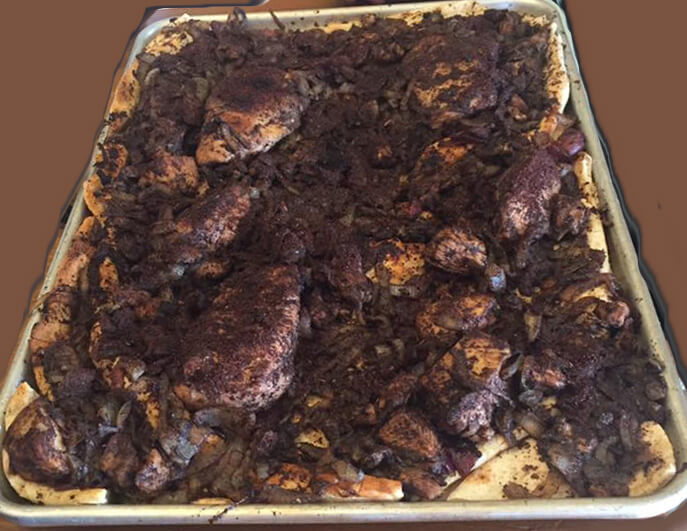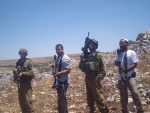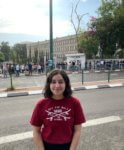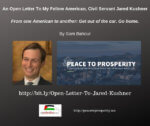Sabeel is Arabic for the “way”, “path”, “road”, “route” and one of the most common words in the Quran, mentioned over 160 times.
Sabeel is also an international peace movement established in Jerusalem by Palestinian Christians seeking a just peace in the Holy Land as defined by international law and United Nations resolutions.
By Eileen Fleming
The next Sabeel Ecumenical Liberation Theology Center’s International Gathering begins in Bethlehem, Palestine on December 2nd and concludes on 7 December 2019.
As I read the invitation I regretted my traveling days are over but my memories of my experiences at Sabeel gatherings and reality tours continue to inspire me to never give up telling the truth about the real facts on the ground in the Holy Land.
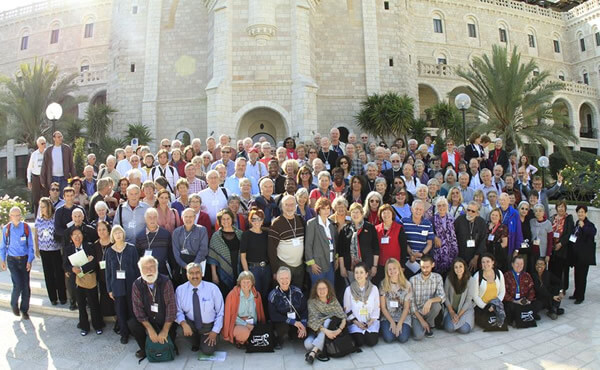
During my eighth and final trip to both sides of Israel’s Wall in 2013, I knew there was no need for me to ever return to that troubled piece of real estate for any more reality tour witnessing but to persist to write in HOPE to educate American Christians about their sisters, brothers and cousins in the Holy Land today.
“HOPE has two children.The first is ANGER at the way things are. The second is COURAGE to DO SOMETHING about it.”-St. Augustine
What follows this invitation from Sabeel’s Chairman of the Board Reverend Naim Ateek to Sabeel’s 2019 International Gathering – are a few of my experiences from Sabeel reality tours.
We begin this introductory rationale with a big welcome to every one of our friends. We would love to have you join us. Come and bring your friends. It will be a great encouragement to have you with us.
It is said that theology is like a cross which vertically leads humanity to God, and horizontally leads us to our neighbour. For Palestinian Christians, this link was damaged during the Nakba. Unable to go back to our former theological thinking while struggling to find a way forward. Whether it was Western feelings of guilt, the theology of Christian literalists, or the ideology of Zionism, the bible was used to grant approval to the tragedy of the Palestinian people. This is the Faith Nakba, from which various Palestinian Christian theologies have sprung. We at Sabeel believe it is now time to celebrate these theologies, the answers they provide, and the questions they raise; and to gather to recommit ourselves to keep on the struggle until justice, liberation, and peace are realized.
As many of you know, Sabeel has been able, over the years, to address many pertinent issues including that of Jerusalem, Christian Zionism, Jubilee, Palestinian Christianity, the Bible, and many others. In our 1st international gathering we hope to do the same by looking at some of the pressing issues that challenge and threaten the very existence of our people. Confronting and addressing these issues are an essential part of our faith and commitment to both oppressed and oppressors. We must take seriously the words of Christ to love our neighbour as we love ourselves. The Gathering is a chance to learn/be updated about the current political situation and about the ongoing realities on the ground. Alongside this, you will have the chance to worship and have fellowship with the Christian community and to meet with our Muslim and Jewish brothers and sisters.
What is special about this gathering?
This gathering will bring together various organisations working for a just peace in Palestine and Israel. Individual organisations will take part of the programme to illustrate their work and you will have a chance to meet, interact, question, and work alongside these organisations. Sabeel believe that, in order for work towards justice and peace to be effective, it needs to be a joint effort. Therefore, we have brought together the following organisations from a variety of backgrounds: Kairos Palestine, Bethlehem Bible College, Musalaha, al-Liqa, and Dar al-Kalima. Each organisation will concentrate on a specific topic from cultural resistance to Christian Zionism.
Taking the lead from the Kumi Now initiative the gathering will explore how, alongside organizations from across the world, we can form a worldwide community of action to achieve a just peace in the land of the Holy One. We will explore how Kumi Now works, it’s effects so far, and hear from some of the organizations involved in the first year of the project.
Based on the principles of inclusivity, justice (in accordance with international law), and nonviolence, we will seek to develop on the work of the Kumi Now project and, with the help of various speakers, will begin to explore how this can be developed internationally, creating a Kumi Now Global initiative to sit alongside Kumi Now Palestine.
Again, we call on our friends to come and join us in this important gathering. Your presence gives us hope and encouragement as together we continue on the path of peace and justice.
Naim Ateek, Chairman of the Board
Gathering Invitation & Draft Program
Registration Form
For more information email registration@sabeel.org.
This American’s memories from a few Sabeel Reality Tours:
During my second [of eight] Reality Tours through the West Bank [since 2005] I was introduced to the Sabeel Ecumenical Liberation Theology Center’s Contemporary Way of the Cross.
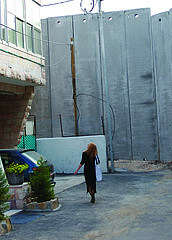
The Sabeel Way transforms the traditional Christian tradition of meditating upon the journey that Jesus trod carrying his wooden cross to his death; with an updated meditation on empire and occupation.
For many Christian churches, Palm Sunday is referred to as “Passion Sunday” and it marks the beginning of Holy Week, which concludes on Easter Sunday.
During Holy Week many of those USA churches will open their doors for people to come in and meditate/focus on the biblical account of Palm Sunday which can be found in Matthew 21:1-11; Mark 11:1-11; Luke 19:28-44; and John 12:12-19.
They tell the story of when Jesus entered Jerusalem and the crowds greeted him waving and covering his path with palm branches.
The story goes that immediately following that triumphant celebration Jesus begins his tortured journey to the cross.
The Stations of the Cross (or Way of the Cross, Way of Sorrows, or just The Way) depict Jesus carrying the Cross-in the final hours or “Passion of Jesus” before he died.
In the Old City of Jerusalem there are fourteen plaques along The Via Delarosa hanging on the walls of ancient stone buildings depicting where Jesus may have fallen three times, meets his mother, is stripped, nailed and dies.
Sabeel’s Contemporary Way of the Cross suggests fourteen reflections beginning with 1948, The Nakba:
The Catastrophe which followed the failure of the UN partition plan of ‘47 when the Irgun and Stern Gang [Zionist terrorist groups] depopulated over 400 villages and forced 726,000 Palestinians to seek refuge in Lebanon, Syria, Jordan, and Egypt.
Station Two of the Sabeel way of the Cross-reflects on those refugees and the 460,000 more that fled during the War of 1967.
There are over 675,670 registered refugees in the West Bank, 938,531 in Gaza and over two million in Arab countries who have never received compensation and are still denied the right to return to their homeland as guaranteed in Articles 13 and 15 of The Universal Declaration of Human Rights and in UN Resolution 194.
During one of my Sabeel Reality Tours we took a short bus ride from the Old City of Jerusalem into the lush green grounds of the Pizgatzeev settlement.
All of Israel’s settlements are illegal under international law.
I was sick at heart and in my gut as we rode less than a mile into the colony as I counted three playgrounds and two swimming pools. I wondered how many USA tax dollars and Christian churches helped build them.
My Sabeel group rolled out of the bus to pray near a playground but facing the Anata refugee camp where we had been ten minutes prior.
As we began to pray a gunshot issued from Anata and then another and another in rapid succession.
I was told that the Israeli Forces were showering the refugees with gunfire at that moment because school was letting out and that terror was a ‘normal’ daily occurrence for the children of Anata!
I lost it completely and sobbed uncontrollably, feeling like the Magdalena when she could not find her Lord.
Then I thought of Jesus, and how he cried buckets of tears as he “approached Jerusalem and saw the city, he wept over it.”-Luke 19:41
Jesus is quoted in Matthew 23:37: “O Jerusalem, Jerusalem, you who kill the prophets and stone those sent to you, how often I have longed to gather your children together, as a hen gathers her chicks under her wings, but you were not willing.”
About an hour’s walk from the Old City of Jerusalem lies the little town of Bethlehem in the occupied state of Palestine.
During my July 2007 Sabeel reality tour visit to Bethlehem, I met Mitri Raheb the Pastor of the Evangelical Lutheran Christmas church in Bethlehem.
Raheb spoke with such fierce urgency, I can still feel him standing in front of me saying:
We are nonviolent but I have problems with nonviolence; people from abroad come here and give us sermons on nonviolence and I appreciate it, but why don’t they preach nonviolence to Israel and America?
It’s a miracle that the Palestinians are so nonviolent in spite of the abuse we live with on a daily basis. If you lived here every day you would get fed up too.
The world assumes it is the Palestinians who are the violent ones, but nonviolence is who we are. If you operate in a system of violence you will also be violent when you go home.
Where do you think Hamas learned to torture? In Israeli prisons from their captors!
There is no way to end the violence without first ending the occupation!
Our Palestinian government was boycotted for a year and a half by America and the EU: this is violence!
As long as the violence is exercised against us that is OK with the world. When the Presbyterians talked divestment the Zionist rose up and said ‘you can’t do that!’
I started interfaith dialogue in 1985 because Christians should not be islands and you don’t dialogue just with yourself, you must dialogue with the other.
The biggest temptation for the church is to stay within their walls and only be dedicated to their own members; which leads to a dead church.
We are called to go out, and we do not just preach with words, people here are fed up with words; they hear one thing and see another with their eyes.
They hear peace, peace, peace and for 85 years the politicians have been working for peace and the situation gets worse.
Fifty million American dollars went to build the checkpoints to ‘make our lives easier’ we were told, but these checkpoints and terminals are not for people, they are for cattle!
We have too much religion and it suffocates us! If God would speak today he would say, ‘I am fed up with your religion!’
The more religion there is; the less spirituality…
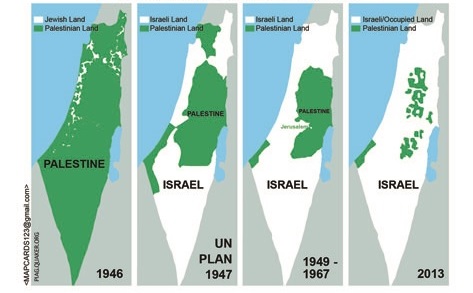
The Christian EXODUS coupled with low birth rates has reduced the number of Christians from 20% of the total population of that troubled piece of real estate to less than 1.3% since 1948.
Many American Christians visit Israel but never meet a Palestinian Christian, who are their sisters and brothers in Christ!
In the gospel [good news] story told in Mark 3: 31-35, the mother of Jesus’ and his brothers arrived at a house where he was teaching.
Standing outside, they sent word to Jesus to call him out.
The crowd around Jesus told him, “Your mother, sisters and brothers are outside asking for you.”
Jesus replied, “I am here with my mother, sisters and brothers. For whoever does the will of God is my brother, sister and mother.”-Mark 3: 31-35
700 years before Jesus, Micah rebuked Israel because of dishonesty in the marketplace and corruption in government.
In his early prophecies, Micah predicted the destruction of Samaria and Jerusalem for their respective sins.
The Palestinian Authority and the international community do not recognize the term “Samaria” but the territory is understood to refer to part of the West Bank.
Micah warned the people of pending destruction if their ways and hearts were not changed and he summed up best in Micah 6:8:
“What does God require? He has told you o’man! Be just, be merciful, and walk humbly with your Lord.”
Being just means correct, true, accurate, right and fair.
Merciful is to have, feel and show compassion, that sense of viscerally feeling the pain of another and being moved to help.
Being humble is knowing yourself-the good and the bad-for both cut through every human heart.
And FREE WILL means we get to choose which rules ours!
TRAILER: THE STONES CRY OUT – THE STORY OF THE PALESTINIAN CHRISTIANS
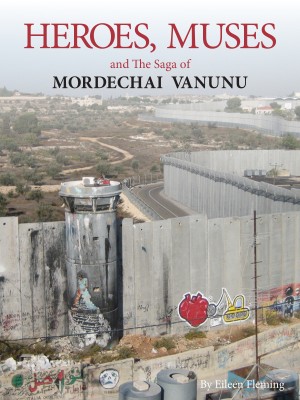
Eileen Fleming writes for TheArabDailyNews HERE
Contact Eileen Fleming
HERE
Eileen Fleming produced:
And:
“We Americans and the USS Liberty”


- Vanunu still has more nuclear secrets to spill, Israeli court declares - December 29, 2021
- 9/11 and a 20th Reflection of That Day - September 5, 2021
- Mordechai Vanunu: Final Annual Update and this Writers Next Steps - June 19, 2021













